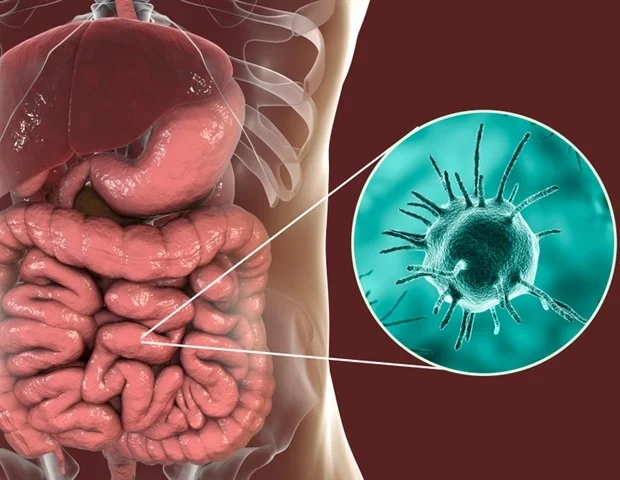Daily Tips for Managing Chronic Amoebiasis

Managing chronic amoebiasis often caused by the parasite Entamoeba histolytica requires a careful, consistent daily regimen that combines medical treatment, dietary and lifestyle measures, and prevention tactics. Below is a comprehensive guide of daily tips designed to help you manage this condition better.
Understanding the condition
Chronic amoebiasis occurs when E. histolytica persists in the intestines (and sometimes extra-intestinal sites) leading to ongoing or recurrent symptoms like abdominal discomfort, diarrhea (which may be intermittent), weight loss, and fatigue.
Treatment typically involves antiprotozoal medications (for example Metronidazole) for invasive disease, followed by a luminal agent to eradicate cysts and prevent relapse.
Prevention of reinfection and proper hygiene are critical because poor sanitation and contaminated food or water are major risks.
Daily Tips for Management
Here are practical suggestions you can adopt every day. They are grouped for clarity, but of course many overlap.
1. Adhere strictly to prescribed treatment
-
Take your antiprotozoal medications exactly as your physician prescribes. If you’re dealing with chronic infection or relapse risk, ensure full course completion. For instance, metronidazole followed by a luminal agent is a standard sequence.
-
If you are in the wholesale or procurement side of things (for example dealing with mebendazole wholesale supplies) it’s critical that any medication procurement and usage adhere to quality standards, correct dosage, and oversight by health authorities. While mebendazole is primarily an anthelmintic (for worm infections) rather than standard treatment for amoebiasis, ensuring correct drug use in parasitic disease management is a principle that generalises.
-
Avoid alcohol during and for a few days after treatment with nitro-imidazoles (e.g., metronidazole) because of disulfiram-like reactions and other side-effects.
-
Schedule follow-up stool examinations or other diagnostic checks (as recommended) to confirm eradication or to detect relapse.
2. Maintain excellent hygiene
-
Wash your hands thoroughly with soap and water after using the toilet, before preparing food, and before eating. This interrupts the fecal–oral transmission cycle.
-
If you live in or travel to regions with questionable sanitation (which may apply in certain areas in India or elsewhere), be extra vigilant: drink boiled or bottled water, avoid ice cubes from uncertain sources, avoid raw vegetables unless you can reliably wash/peel them.
-
Ensure proper sanitation and handling of food: clean cooking surfaces, safe storage of leftovers, avoid cross-contamination of raw and cooked foods.
3. Diet, hydration and gut health
-
Stay well hydrated. Diarrhea, more frequent stools, or intestinal upset can lead to dehydration. Ensuring adequate fluid intake supports recovery.
-
Eat a balanced diet rich in fibre (if tolerated), lean protein, fresh fruits and vegetables (washed/peeled), and avoid overly fatty, spicy, or highly processed foods that may irritate the gut.
-
Probiotics may help restore gut flora balance, though evidence specific to E. histolytica is limited. Discuss with your physician whether a probiotic supplement is safe/appropriate for you.
-
Avoid excessive consumption of raw or un-peeled fruits or vegetables unless you are certain of safe washing. In endemic settings, contamination is common.
4. Lifestyle support & monitoring
-
Regularly monitor symptoms: new onset of blood in stool, prolonged diarrhea, worsening abdominal pain, unexplained fever or weight loss should prompt medical evaluation (especially as invasive disease or liver abscess is possible).
-
Maintain a moderate physical activity level exercise supports overall immunity and gut motility but avoid over-strain if you feel fatigued or have active symptoms.
-
Manage stress: psychological stress can affect gut function (motility, flora, immune response). Try to get sufficient sleep, practice relaxation (deep breathing, meditation) and maintain a semi-regular schedule.
-
If you are immunocompromised (e.g., on corticosteroids, have malignancy, malnutrition) you are at higher risk of complications from amoebiasis. Extra vigilance is warranted.
5. Preventing relapse & reinfection
-
Even after symptoms improve or resolve, you must assume there’s a risk of cyst carriage or reinfection until follow-up exams confirm clearance. Some literature reports substantial percentages of patients have persistent colonisation unless luminal agents are used.
-
Avoid sharing towels, underwear, intimate hygiene items until clearance is confirmed.
-
If you live with others, ensure their hygiene; infected carriers may contaminate shared spaces, affecting your risk of reinfection.
-
Environmental sanitation: ensure clean toilets, safe disposal of waste, avoid contact of food preparation with any potential contamination sources.
6. Working with procurement/supply context (relating to “mebendazole wholesale”)
-
If you or your organisation deal with wholesale pharmaceutical procurement (e.g., mebendazole wholesale for parasitic infections), apply the same principles for drugs used in amoebiasis: ensure quality supply chains, proper storage, valid certifications, correct labelling and expiry management. While mebendazole is not the standard treatment for E. histolytica (it’s used for helminths), the concept of responsible wholesale drug handling applies across parasitic treatment contexts.
-
Ensure that any anti-amoebic agents are sourced from reputable manufacturers, with proper regulatory approval, and that clinicians are aware of the correct indications (e.g., metronidazole + luminal agent) to avoid inappropriate use or under-dosing which can lead to treatment failure or resistance.
-
Educate prescribing clinicians and pharmacy staff about correct treatment regimens for chronic amoebiasis: tissue amebicide first, then luminal agent to eradicate cysts.
-
Maintain stock-records, monitor expiration, avoid substandard or counterfeit products, ensure patient access to full courses of therapy to avoid relapse.
7. Follow up and long-term vigilance
-
After initial therapy, schedule periodic check-ups: stool tests, possibly antigen/DNA testing if available, assessment of nutritional status and gut health.
Monitor for potential complications: extra-intestinal spread (e.g., liver abscess) though rare, is serious.
-
Nutritional recovery is important chronic infection may contribute to malnutrition or weight loss; support with diet, vitamins (as indicated by your doctor) and possibly consultation with a dietitian.
-
If symptoms recur, avoid self-medicating; get evaluated rather than interpreting it as “just a flare”.
8. Education & communication
-
Ensure you understand the infection cycle: ingestion of cysts, transformation to trophozoites, potential for tissue invasion, role of hygiene. This awareness helps you maintain preventive behaviours.
-
Communicate with family or co-habitants: explain hygiene practices, food handling rules, importance of completing treatment.
-
If you travel or are in high-risk contexts (areas with suboptimal sanitation), take preventive measures: safe water, sealed bottles, boiled/filtered water, avoid raw street food.
Summary
In managing chronic amoebiasis, the daily routine matters: medication adherence, hygiene vigilance, dietary/gut support, lifestyle maintenance, and relapse prevention form the pillars. In contexts where supply/wholesale procurement of antiparasitic medications (e.g., mebendazole wholesale) is relevant, ensuring quality, correct indication, and responsible distribution supports effective public-health outcomes. While mebendazole itself is not first-line for E. histolytica, the principles of wholesale drug handling and procurement perform a supporting role in parasite management broadly.
With consistent care, many individuals achieve full recovery and prevent relapse. But because the potential for reinfection, cyst carriage, or complications exists, long-term vigilance is key. Always stay connected with your healthcare provider, follow their treatment plan, and employ the daily tips above to support your recovery and gut health.


